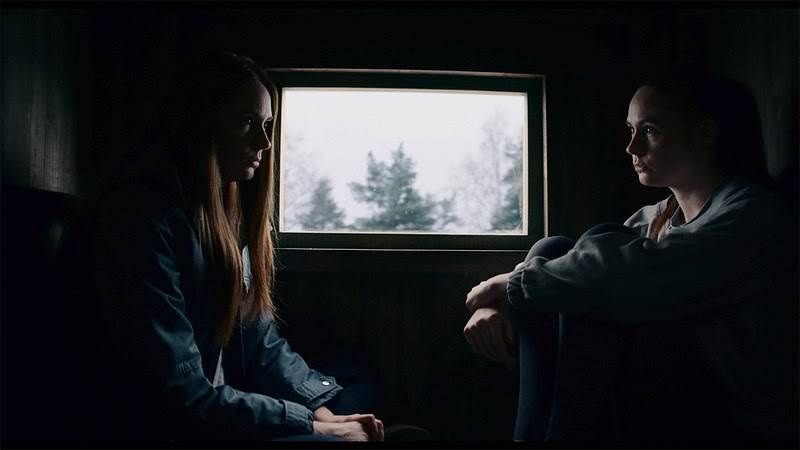Karen Gillan takes on Karen Gillan in Dual, a twisted drama from the mind of director and screenwriter Riley Stearns. Premiering at the 2022 Sundance Film Festival, the story is seemingly based on a Google search result for the difference between “Dual” and “Duel,” forming a narrative around the answer. It should therefore come as no surprise that it includes both definitions in the form of a duplicated person and a fight to the death.
Set in a future where technology feels oddly regressive, Sarah (Karen Gillan, Guardians of the Galaxy) leads a bland existence of dodging calls from her mother and not quite connecting with her long-distance boyfriend Peter (Beulah Koale). When she is diagnosed with a terminal illness, she elects to have a “Replacement” created, a clone that will learn how to be her and take her place when she passes. But after Sarah’s double gets involved with Peter and her mother, Sarah learns that she is in remission, further complicating the situation.
Dual takes a potentially interesting premise and avoids having any fun with it. We are welcomed into this drab world with a televised duel to the death, casually explained away by a rule that replacements can only be created for a terminally ill individual. If the original person overcomes their illness, the clone will be “Decommissioned” (destroyed). But if the replacement has been living in the world long enough, they can petition to keep their life, in which case the original person could be the one to die. The decision is settled by a televised duel, which is where Sarah finds herself heading.
Characters have almost no development, giving the actors little to work with. Outside of the two people Sarah interacts with, her personality is developed in such a way that we know she likes Mexican food and has feelings of insecurity about her body. The dialogue feels unnatural, leading to robotic performances across the board. Karen Gillan and Aaron Paul (Breaking Bad) do their best to add some charm to their characters, but more needed to happen narratively to fix these issues. Dual was also made in Finland and utilized locals to fill in supporting roles, leading to a peculiar mix of accents for a film set in the United States.
Perhaps the biggest upset with Dual is that it spends most of its 95-minute runtime building up a literal clone war, only to deny you the satisfaction of seeing it. It’s an independent film with a low budget so you aren’t expecting much of a spectacle, but when the opening sequence is ten times more exciting than the film’s climax, you can’t help but scratch your head in confusion. Everything about the film feels like a letdown.
I give Dual 1.5 out of 5 stars.

